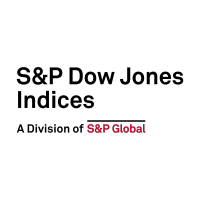Tag Archives: correlation
Opportunity to Outperform
It’s been a challenging year for U.S. equities as investors adjust to a new rising rate regime, with inflation concerns at the forefront, coupled with uncertainty around future economic growth. Market commentators have argued that this environment is ideal for stock pickers to shine. This argument is correct, but with a caveat. With the S&P…
- Categories Equities, S&P 500 & DJIA
- Other Tags
Kensho Correlations
The Wall Street Journal reported that many active managers struggled to outperform the market in 2021. This underperformance is not surprising, as we observed less than ideal prospects last year for active management both in the U.S. and globally. Dispersion and correlation provide convenient lenses through which to analyze stock selection conditions. All else equal,…
No Safe Harbor for Stockpickers
We can use volatility and its components dispersion and correlation to analyze stock selection conditions globally. Most active managers run less diversified, more volatile portfolios than their index counterparts. Active managers should prefer above-average dispersion because stock selection skill is worth more when dispersion is high. The role of correlation is more subtle. While counterintuitive,…
- Categories Equities, S&P 500 & DJIA
- Other Tags
Headwinds on the Active Horizon
Active managers’ performance was disappointing in 2020, despite the market’s heightened volatility. As the market continues to march upward in 2021, it’s natural to wonder if current conditions are favorable for stock pickers. We expect active managers’ difficulties to persist. We can think of volatility in terms of its components: dispersion and correlation. Active managers…
- Categories S&P 500 & DJIA
- Other Tags
Opportunity Does Not Equal Attainment
We’ve previously argued that most managers should prefer above-average correlation, because the incremental volatility a manager accepts to pursue an active strategy will be lower when correlations are high. In addition, active managers should prefer above-average dispersion, because stock selection skill is worth more when dispersion is high. Both correlation and dispersion rose in 2020….
- Categories Equities
- Other Tags
A Conundrum in a Different Key
Volatility, dispersion, and correlation are elements of what we’ve elsewhere characterized as The Active Manager’s Conundrum. Active managers should prefer: Low volatility, which is typically associated with higher returns High dispersion, which means a larger payoff for correct stock selections High correlation, which reduces the opportunity cost of a concentrated portfolio The conundrum arises because…
- Categories S&P 500 & DJIA, Strategy, Thematics
- Other Tags
- Categories
- S&P 500 & DJIA, Strategy, Thematics
- Other Tags
Making Sense of the Active Manager’s Conundrum
Why are the market environments most conducive to generating positive absolute returns the least conducive to producing positive relative returns? Explore the active manager’s conundrum with S&P DJI’s Craig Lazzara and Anu Ganti.
Coronaviral Correlations
Mea culpa: Roughly a month ago I used a dispersion-correlation map to describe how index dynamics can illuminate market movements. In particular, I reported that since high dispersion seems to be a necessary condition for a bear market, and S&P 500 dispersion levels at the end of February were far below those prevailing in past…
- Categories Equities, S&P 500 & DJIA
- Other Tags
Showtime for Active Managers?
The rapid spread of coronavirus and oil price concerns have whipsawed U.S. equities since the S&P 500® reached its all-time high on Feb. 19, 2020. On March 16, 2020, the index plummeted by 12%, its worst decline since October 1987; as of the close of trading on March 18, 2020, losses for the S&P 500…
- Categories Equities, S&P 500 & DJIA, Strategy
- Other Tags
Equity Liquidity at a Reasonable Price
The fall in equity market values since February’s peak has been sudden and dramatic. During this period, the equity markets have functioned well at their primary task of facilitating price discovery at a time when values were changing rapidly. Equity investors who wanted to trade have been able to trade. (Whether they were wise to…
- Categories Equities, S&P 500 & DJIA
- Other Tags











































